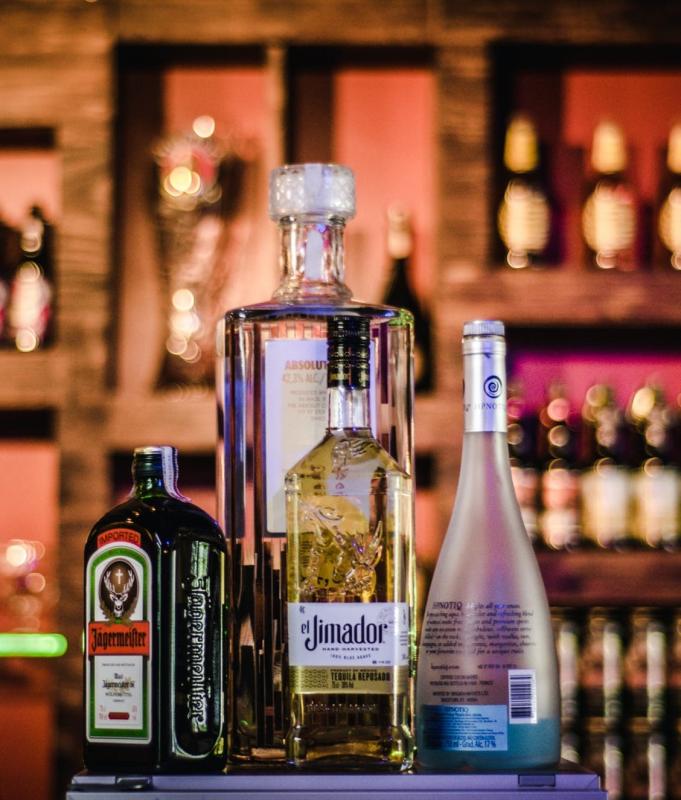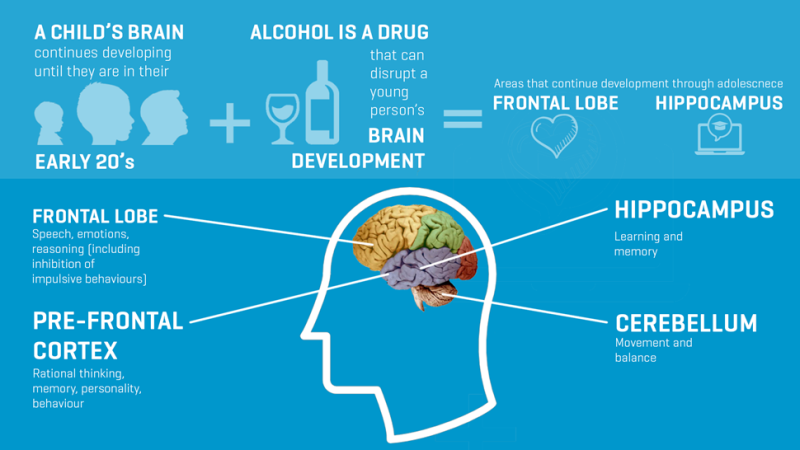In this comprehensive guide to teenage drinking developed by medical and education professionals you will find…
Download FREE alcohol safety guide
Although the frequency of alcohol consumption in young people may be lower than in the past, according to latest reports, the risk of bingeing has increased. Not only is this bad for young people’s long-term health, but these quantities of alcohol can also trigger mood disorders and an increased danger of alcohol-related injury.
Alcohol misuse is one of the leading preventable causes of death, illness and injury in Australia and around one in eight deaths of Australian’s under 25 is now attributed to alcohol consumption.
At Life Education, we believe it is vital to educate children about the dangers of alcohol in upper primary through to secondary school. We do this through our Think Twice module which empowers young Australians to make informed and responsible choices.

Did you know teenage drinking can negatively affect brain development?
Research shows the longer a young person delays the use of alcohol, the more chance the brain has to finish developing in the vital areas of speech, emotions, reasoning, learning and memory.
This is why, at Life Education we believe it is vital to educate children in upper primary through to secondary school about the dangers of alcohol, so that they are empowered to make informed and responsible choices when they are faced with the decision to drink, later in life.
There are also some things you can do as parents. Try:

Preparation and knowledge provide the foundations to help you respond effectively in an emergency. Watch the video and equip yourself with expert advice from emergency services staff and Professor Gordian Fulde.
Expert advice from Nick Adam, an intensive care nurse, and Professor Gordian Fulde, former Director of Emergency at St Vincent’s Hospital.
Schoolies strikes fear into the hearts of most parents. It’s normal for parents to worry about teenage drinking – we’ve heard Schoolies horror stories. But focussing on negatives can be counterproductive and create anxiety in both us as parents and our teenagers. So, what should parents do to prepare their kids for Schoolies Week or any other teenage celebration or party?
Firstly, it is important to recognise that for the most part, our young people are making good choices. For example, rates of alcohol consumption, drug use and smoking are on the decline among teens.
We need to celebrate with our children.
Schoolies is a celebration of all the hard work and achievement of our young people. It’s a cultural rite of passage in Australia: young people emerging into the adult world. The same could be said for end of year or Christmas parties. We as parents need to have an understanding of the value of the week, and celebrate the successful young people we have raised.
Reminding our kids of their strengths, talents and resources makes young people more likely to engage these skills. It reinforces that they are already armed with the skills they need to keep themselves safe, and builds their confidence and resilience. This can work both ways. It also reminds us as parents about the wonderful job we have done and reassures us that our kids will be alright.
 Seven tips for how to celebrate with your children.
Seven tips for how to celebrate with your children.Through our program, we are speaking with your kids about the use of drugs and alcohol and how they can affect our bodies. We do this to empower them to make better choices in their life. Find out more about this work in our Decisions module.
When drinking becomes a habit, taking a break can be difficult. Maybe you have tried before and struggled (or failed)? A positive focus will ensure your break from alcohol is a good one.
Research tells us clearly that teens and alcohol don’t mix.
Given the dangers of alcohol, particularly when it comes to teenage drinking, and the regular news stories describing out-of-control teens, it is a good news day when data points to reductions in teen drinking.
The Australian Secondary Students’ Alcohol and Drug Survey (ASSAD) highlighted that drinking among 12-17 year-olds fell from 29% in 2002 to 11% in 2011 and lower again, to 8% in 2014 (when asking about past-week consumption). It’s worth pointing out that while our alcohol consumption is dropping, so too are youth use of tobacco and illicit drugs on average.
Research, published in the scholarly journal, Addiction, shows that the trend is continuing and has been found to be true in multiple areas. In this research, participants were asked if they had consumed alcohol in the previous 12 months – certainly a much clearer indication of drinking behaviour than the ASSAD report which considered only the past week. The data told the following story:
The research suggests three key reasons for the shift in the change towards tee-totalling among our youth:
If the data are accurate, we are seeing a positive public health change occurring in our youth, making them healthier and safer than previous generations. Among the stories that society is falling apart, this is wonderful news. This research gives us glimmers of hope, and suggests that in most cases, the kids are alright.
But there is more work to do, Don’t turn a night out into a nightmare, highlighted that:
Talk to them. Have honest, trust building conversations.
Check your facts. DrinkWise